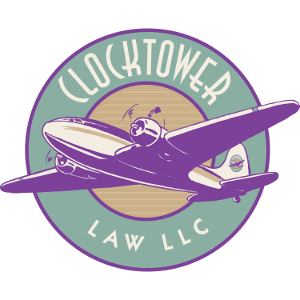Nonprofit discount extended to any group marginalized by the Trump administration.
Acton MA, February 14, 2017 – Today, on the feast day of Saint Valentine, the celebration of love and affection, Clocktower Law announces that it is extending its nonprofit discount (50% off of Clocktower Law’s fees, excluding all third party fees) for patent and trademark services to any startup owned in whole or in part by any group that identifies as having been marginalized by the Trump administration.
As a starting point, we will use the list compiled by The New York Times currently entitled “The 307 People, Places and Things Donald Trump Has Insulted on Twitter: A Complete List.” That list is by no means exhaustive, so we note that this offer applies to, for example, Muslims, immigrants (especially those from Iran, Iraq, Libya, Somalia, Sudan, Syria, and Yemen; the seven nations targeted by Trump’s Executive Order 13769), women, journalists and the media, the LGBT community, the disabled, African-Americans, and teachers.
“When Barack Obama was elected in 2008,” said Clocktower Law founder Erik J. Heels, “we launched a program designed to help startups and boost the sagging economy, a program that was inspired by Obama’s acceptance speech on election night.” That night, 11/04/08, Barack Obama said:
“So let us summon a new spirit of patriotism; of service and responsibility where each of us resolves to pitch in and work harder and look after not only ourselves, but each other. Let us remember that if this financial crisis taught us anything, it’s that we cannot have a thriving Wall Street while Main Street suffers. In this country, we rise or fall as one nation; as one people.” (Emphasis added.)
Since Trump took office, on the other hand, a culture of negativity, isolationism, and blame has taken over the White House. In his inauguration speech on 01/20/16, Donald Trump said:
“From this day forward, a new vision will govern our land. From this moment on, it’s going to be America first. Every decision on trade, on taxes, on immigration, on foreign affairs, will be made to benefit American workers and American families. We must protect our borders from the ravages of other countries making our products, stealing our companies, and destroying our jobs. Protection will lead to great prosperity and strength.” (Emphasis added.)
“I believe that protectionism doesn’t make America great again,” said Heels, “I believe it makes us small. Most startups need trademarks, some need patents, and if we can help those excluded or marginalized by the current administration feel included and empowered, then we will have succeeded.”
This 50% discount applies to any company who becomes a client on or before April 29th, 2017, the 100th day of the Trump presidency. For more information, email info@clocktowerlaw.com.
About Clocktower Law
Clocktower Law is a small Boston-area patent/trademark law firm founded by Erik Heels in 2001. Clocktower Law helps companies protect their ideas (with patents and trade secrets) and brands (with trademarks, domain names, and usernames) from the competition. Clocktower Law’s patent and trademark lawyers have worked as non-lawyers for software and Internet startups, so we understand how intellectual property (IP) works in the real world. As such, Clocktower Law has helped many entrepreneurs have successful exits (getting acquired, going public). We do not, however, represent patent trolls, trademark bullies, or cybersquatters. So we’re not the right firm for everyone. But we’re a good choice for many.
About Erik J. Heels
Erik J. Heels is an entrepreneur, veteran, and the founder of Clocktower Law LLC (Clocktower Law), a patent and trademark law firm in Great Boston (not a typo) that caters to startups. He earned his BS in electrical engineering from the Massachusetts Institute of Technology (MIT) and his JD from the University of Maine School of Law (Maine Law). Erik has never belonged to any political party. As it says in the ‘political views’ section of his Facebook profile: ‘Independent. I vote for the smartest candidate. It doesn’t always work out.’



